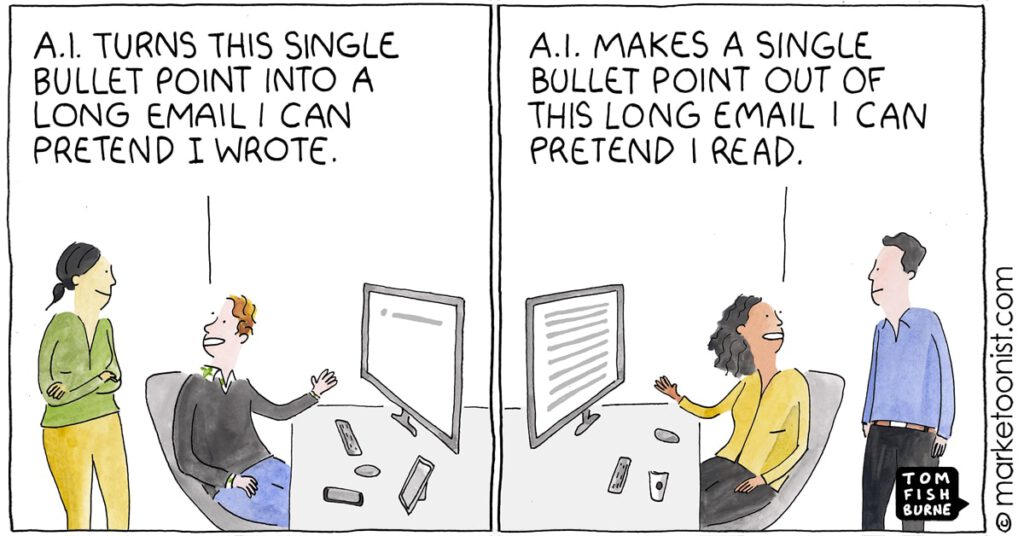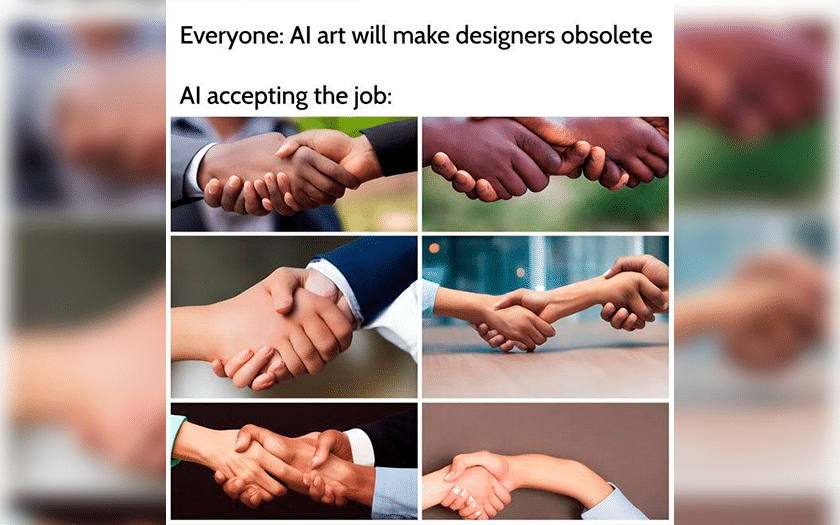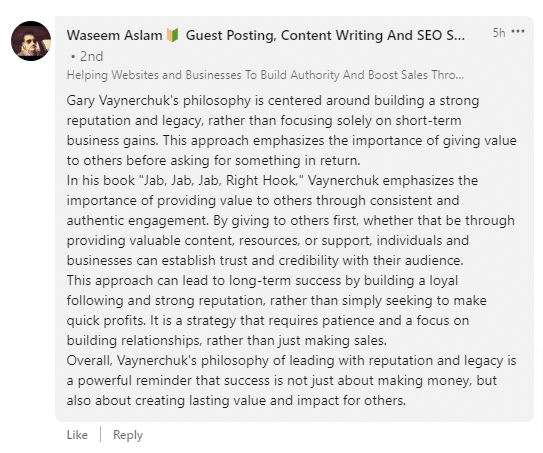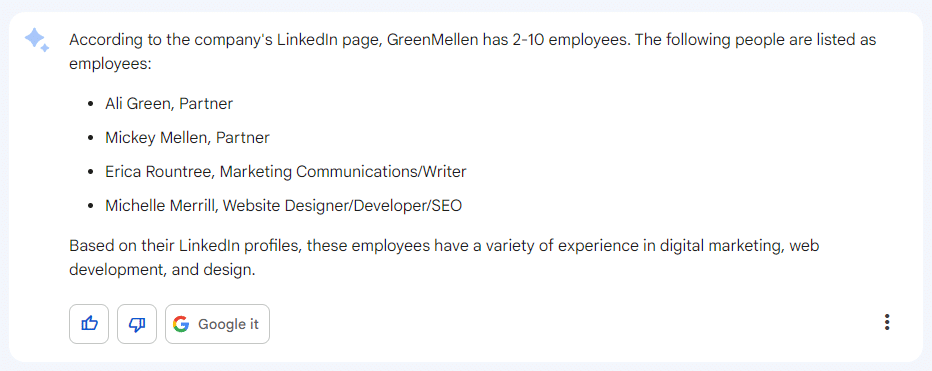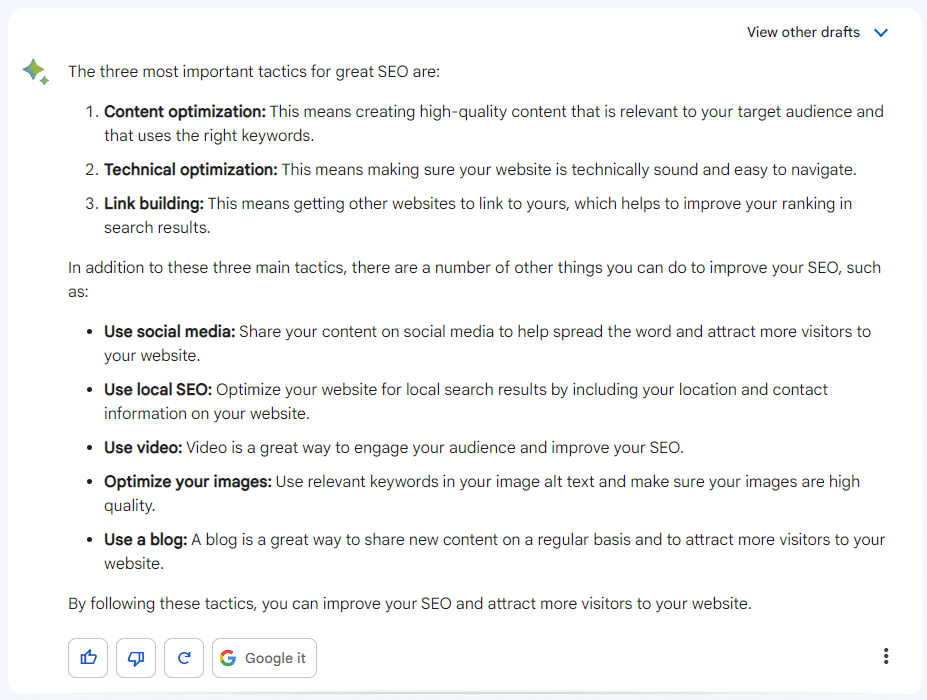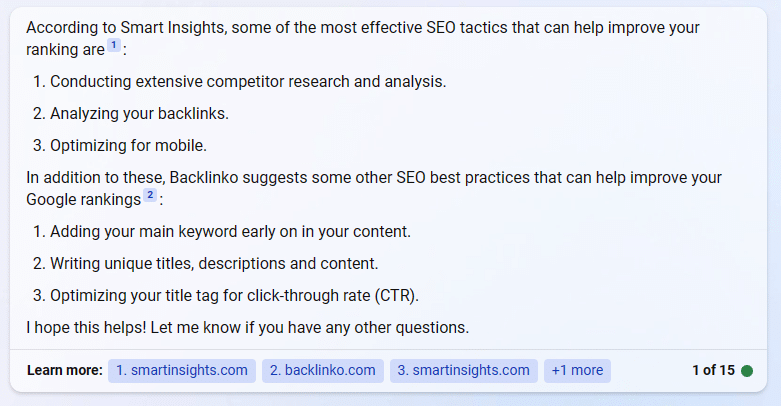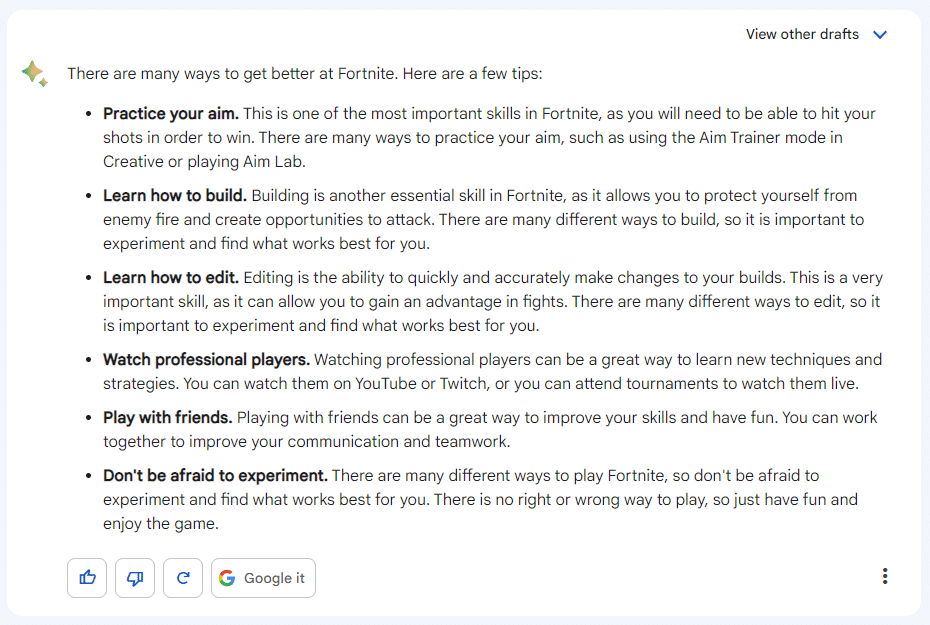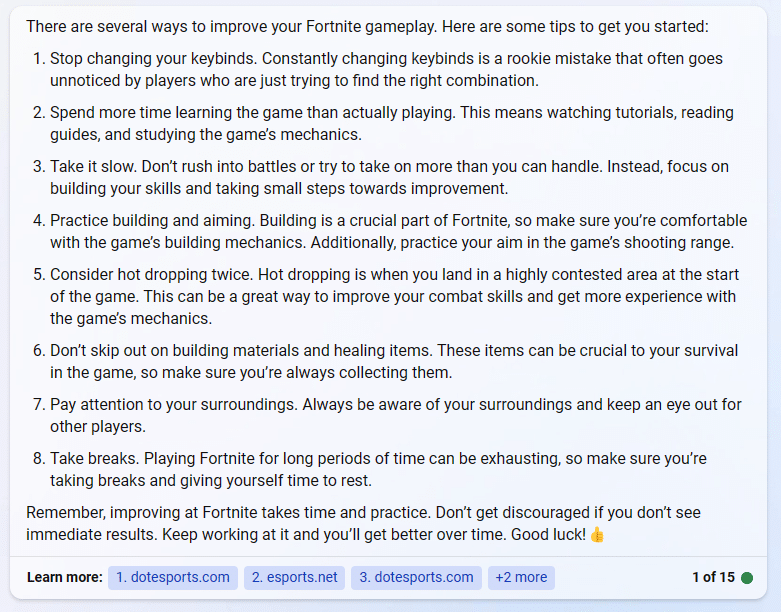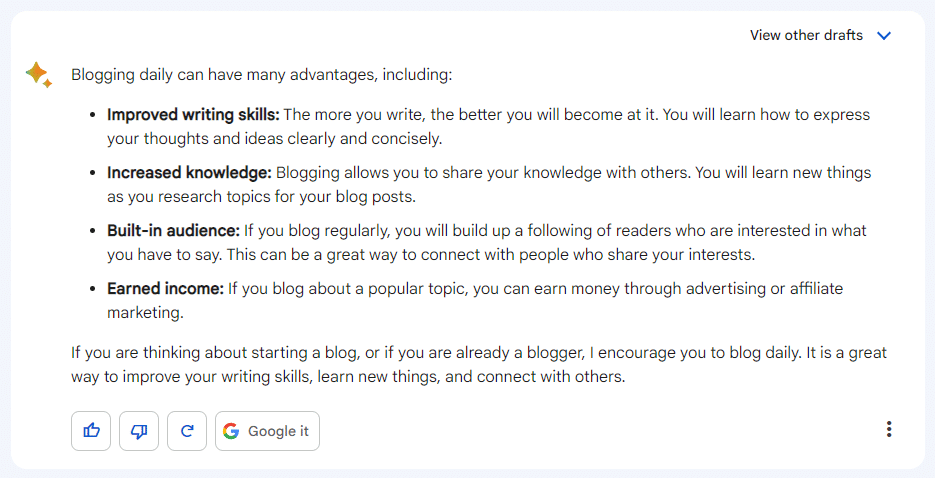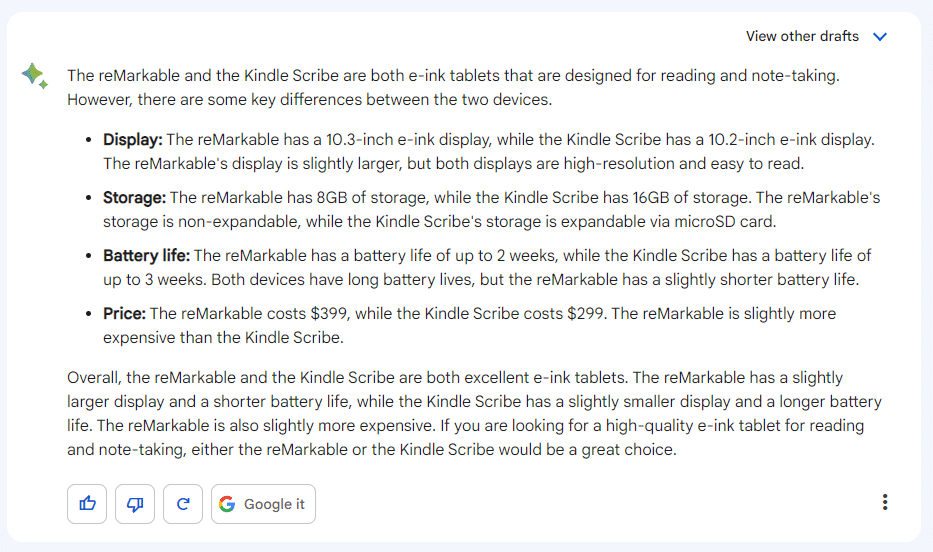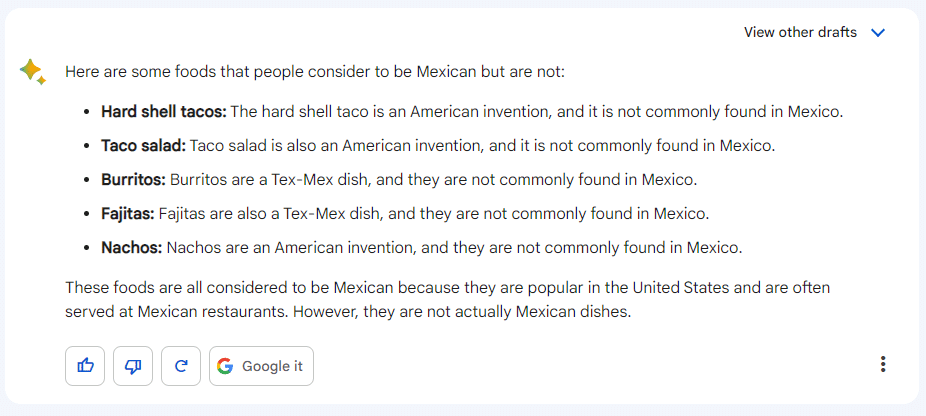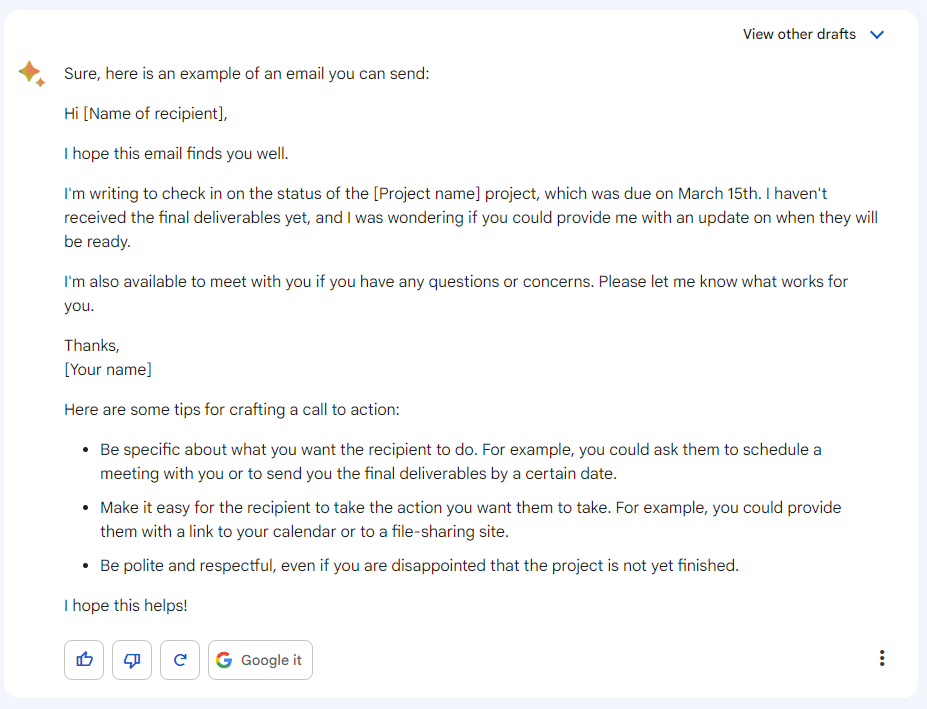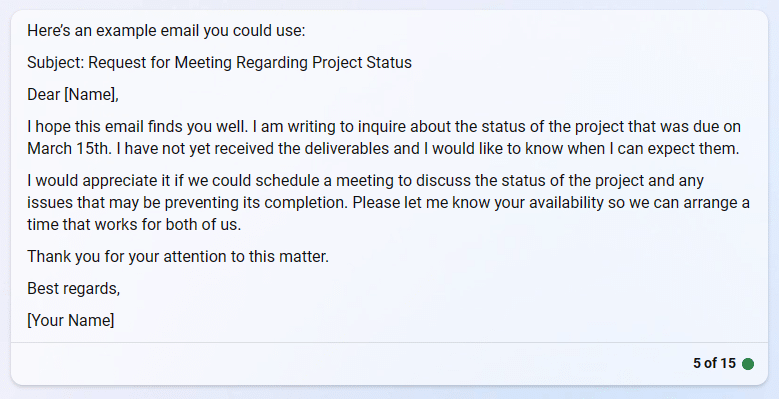While AI is already writing a ton of the content that you come across on the internet, that won’t ever be the case on here. That’s not because AI isn’t good enough or useful, but it goes against what I’m trying to accomplish.
Recently, Blair Enns shared the following on Twitter:
AI is only eating the jobs of those who write for SEO and other curators of facts. If you write to better understand the world and to grow, and you publish to invite others along for the ride, your job is not only safe, it’s becoming even more valuable.
As Blair says, there is a solid case to use AI to help write for SEO and other promotional types of content. It’s still imperfect and needs a human touch, but it’s coming along quickly and soon it’ll be virtually impossible to distinguish between AI and humans for most content.
That’s not to say I won’t use AI to a degree on here. I perhaps could use it to help generate ideas, but at this point I have way more ideas than I have time. However, I could see adding an AI-powered search tool to the site, similar to the one that Seth Godin uses. Seth’s is pretty neat, and he very intentionally has it show the summary using a third-party voice because he knows that it may not always be accurate.
Back to Blair’s tweet, my sole purpose here is indeed to “understand the world and to grow”, and farming the content out to AI to any meaningful degree would completely eliminate that purpose. AI will be fantastic for a lot of things, but there will be places where I intentionally avoid it in order to keep things on track.
